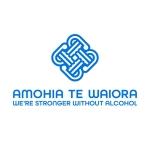ALAC wants warnings of drinking while pregnant on alcohol containers
The Alcohol Advisory Council (ALAC) is already pushing for health advisory labels on alcohol containers warning of the dangers of drinking alcohol while pregnant.
The country’s coroners have recommended warning labels to be fixed to alcohol bottles in the same way health warnings are printed on tobacco packets and for greater efforts to be made to educate the public through campaigns about the danger of death from drinking too much alcohol.
ALAC’s Early Intervention Manager Sue Paton said ALAC fully supported health advisory labels warning of the dangers of drinking during pregnancy.
ALAC lodged an application for health advisory labels associated with drinking during pregnancy with the Australia New Zealand Food Standard Authority (ANZFSA) in 2006.
“Drinking alcohol during pregnancy is associated with varying degrees of harm to the unborn child,” she said. “Women need to have the necessary information to make informed choices about any product they may potentially consume during pregnancy that could harm the fetus.
“Not having this basic foundational information displayed on the product sends a signal to women that alcohol mustn’t be that much of a problem during pregnancy – a message that is contrary to both ALAC and official Ministry of Health advice to avoid alcohol during that time.
“Putting health advisory labels on alcoholic beverage containers is an essential part of a much wider public health strategy aimed at increasing awareness of the risks of drinking alcohol during pregnancy.”
Ms Paton said alcohol manufacturers were required by law to display the alcohol content of every beverage as well as the number of standard drinks this represents. Other Western nations such as France, Ireland and South Africa had already mandated pregnancy health advisory statements for alcohol.
Ms Paton said the application had been overtaken by a further application to the authority in 2008 from the Australia and New Zealand Food Regulation Ministerial Council asking for mandatory health warnings to be placed on all alcohol containers.
The authority was now considering both applications in tandem, she said. The evidence for the effectiveness of blanket labeling of alcohol containers with a general health warning as opposed to targeted messages was mixed. However, ALAC would be looking at the evidence submitted to the Food Standards organisation.
ANZASF – now known as Food Standards Australia New Zealand FSANZ) - is a bi-national Government agency responsible for the Australia New Zealand Food Standards Code’ which lists requirements for foods such as additives, food safety, labelling and GM foods.
